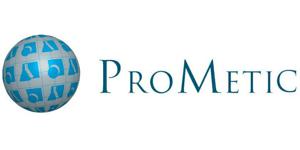
Prometic Life Sciences has received Swedish Medical Products Agency (MPA) Clinical Trial Application (CTA) approval to commence a phase 2 clinical trial of its plasminogen therapy in patients suffering from diabetic foot ulcer (DFU).
The phase 2 clinical trial is a prospective, dose escalation study of the safety, feasibility and initial efficacy of subcutaneous plasminogen for the treatment of DFU in 20 adult subjects. The study will be conducted in one study center in Sweden, under the supervision of Dr. Jan Apelqvist, an expert in the field of diabetic foot ulcers and hard to treat wounds from the Department of Endocrinology, Division of Clinical Sciences at Skane University Hospital in Malmö, Sweden.
"Diabetic foot ulcers comprise a serious, large and well-known area of unmet medical need where we believe plasminogen therapy can potentially make a difference," said John Moran, M.D., chief medical officer of Prometic. "Plasminogen is known to be essential for normal wound healing, and we have strong preclinical data showing that local injection of plasminogen improves wound healing in diabetes".
Pierre Laurin, president and chief executive officer of Prometic, said, "Plasminogen is the key protein involved in the healing and tissue regeneration process. It's a scientifically proven fact that the plasminogen activity level decreases by as much as 50% in diabetic patients, which is why we believe that diabetic foot ulcer is a key indication for us to pursue. This is a large market with total annual costs associated with the condition, including work loss and amputations exceeding $13 billion in the US alone. We have prepared a proprietary formulation to explore a potential solution to address this large unmet medical need".
The Medical Products Agency (MPA) is the Swedish national authority responsible for regulation and oversight of the development, manufacturing and marketing of drugs and other medicinal products.
Prometic gets swedish approval, plasminogen therapy, patients with diabetic foot ulcer